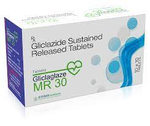diamicron
Introduction to Diamicron
Diamicron is a widely prescribed oral medication used primarily in the management of type 2 diabetes mellitus. It belongs to the class of drugs known as sulfonylureas, which work by stimulating the pancreas to produce more insulin. This helps control blood sugar levels in individuals who are unable to manage their diabetes through diet and exercise alone. Diamicron is known for its effectiveness in improving blood glucose control and is often used as part of a comprehensive diabetes management plan. It is important to use this medication under the guidance of a healthcare professional to ensure optimal results.
Composition of Diamicron
The active ingredient in Diamicron is Gliclazide, which is present in a dosage of 30mg per tablet. Gliclazide is a sulfonylurea that helps lower blood sugar by increasing insulin secretion from the beta cells of the pancreas. This increase in insulin helps the body to better utilize glucose, thus reducing blood sugar levels. Gliclazide is specifically designed to target the pancreas, making it an effective option for those with type 2 diabetes who still have some pancreatic function. Its action is crucial in preventing complications associated with uncontrolled diabetes.
Uses for Diamicron
- Management of type 2 diabetes mellitus.
- Helps in controlling blood sugar levels.
- Used in combination with diet and exercise for optimal diabetes management.
- May be used alongside other diabetes medications for enhanced effectiveness.
Side Effects of Diamicron
- Hypoglycemia (low blood sugar levels).
- Nausea or vomiting.
- Abdominal pain or discomfort.
- Headache.
- Dizziness or lightheadedness.
- Allergic reactions such as skin rashes.
Precautions of Diamicron
Before taking Diamicron, it is important to inform your healthcare provider about any existing medical conditions, especially liver or kidney problems. Regular monitoring of blood sugar levels is essential to avoid hypoglycemia. It is also crucial to maintain a balanced diet and regular exercise routine while on this medication. Pregnant or breastfeeding women should consult their doctor before using Diamicron. Additionally, be cautious when driving or operating machinery if you experience dizziness or other side effects.
Specifications of Diamicron
Diamicron is available in tablet form, specifically containing Gliclazide at a dosage of 30mg. Currently, there are no syrup, injection, or capsule forms of this medication. It is important to follow the prescribed dosage and administration instructions provided by your healthcare professional to achieve the best results.
Conclusion
Diamicron is a key medication in the management of type 2 diabetes, offering effective blood sugar control through its active ingredient, Gliclazide. By stimulating the pancreas to produce more insulin, it plays a vital role in a comprehensive diabetes treatment plan. While effective, it is important to be aware of potential side effects and take necessary precautions. Always consult with a healthcare professional to ensure Diamicron is the right choice for your diabetes management needs.
Similar Medicines
Available in 4 variations

Diamicron Tablet 10s
strip of 10 tablets

Diamicron 60mg Tablet XR
strip of 14 tablet xr
Diamicron 30mg Tablet MR
strip of 10 tablet mr

Diamicron 30mg Tablet XR
strip of 10 tablet xr
Related Posts

1:15
5 Healthier Sugar Alternatives!

1:15
Pregnancy and Diabetes: What to Eat? | Foods to Eat for Gestational Diabetes!

1:15
How Do You Know If You Have a Vaginal Infection? Warning Signs!

1:15
Top Health Benefits of Cinnamon | How to Use It for Better Health!

1:15
Is Your Blood Pressure Too Low? What Are the Best Remedies to Fix Low Blood Pressure Instantly?

1:15
Mala D: How it works, When and How to take Mala D and Side Effects of Mala D!

1:15
Reduce Inflammation Naturally: Best Foods for Heart, Diabetes & Overall Health!
Disclaimer : This information is not a substitute for medical advice. Consult your healthcare provider before making any changes to your treatment . Do not ignore or delay professional medical advice based on anything you have seen or read on Medwiki.
diamicron
Prescription Required
Manufacturer :
Serdia Pharmaceuticals India Pvt LtdComposition :
























.svg)
